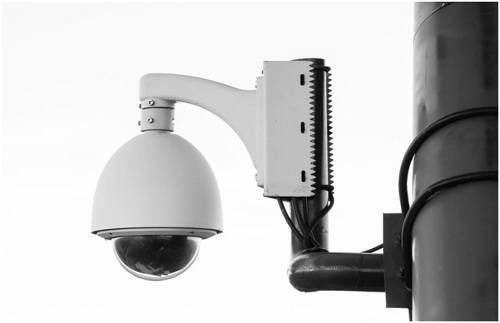Choosing the best home security system from the many options available in the market is a challenging task. Although the introduction of many companies is good for pricing, it makes it incredibly difficult to settle on a particular choice.
If you are looking to purchase or upgrade security system for your home, here are some factors you should consider.
Type of Alarm Monitoring
The type of monitoring is a fundamental element of any home security system. It links you to your security company and ensures your safety during emergencies. There are three types of alarm monitoring – landline, broadband, and cellular.
Landlines are the oldest form of alarm monitoring. They are ideal for rural settings where the reception of wireless networks is significantly weak. It is the cheapest of three options, but also the most vulnerable to tampering.
A burglar can cut off your connection to your security company by cutting the wire. Also, this method of monitoring is wide-open to attacks because it is nearly obsolete.
Broadband relies on an internet connection to notify the monitoring center in case of an emergency. This connection is faster and more secure than a landline. The most significant disadvantage of broadband is its overreliance on internet connection – if the internet is slow, your security system becomes vulnerable to attacks.
Cellular monitoring uses a mobile uplink to communicate with the monitoring team. This option is the easiest to install, and faster than broadband and landline.
The only downside of cellular monitoring is its expensiveness. You also have to ensure that your network has robust cellular coverage.


Installation
Regarding installation, you can either do it yourself (DIY) or have a professional set up the equipment. Your choice depends on your preferences and requirements.
DIY installations give you total control – you choose the location and the design of the security system. In most cases, DIY installations involve wireless security systems that are usually easier to set up than hardwired systems. Before you DIY, consider getting a depreciation report that identifies the most damaged parts of your property.
If you encounter any problems, it is advisable to call a qualified pro to assist you with the installation. The most significant advantage of DIY is the savings you make by doing a technician’s work.
With professional installation, a technician is in charge. They will start by evaluating your home and identifying the optimal location for placing the security equipment. The benefit of this approach is that you get the assurance that the installation is almost flawless.
If you opt for professional installation, consider the charges and the time the process will consume. You also have to find time in your schedule to be home during the setting up of the security system.
Technology
Modern security systems have advanced features that give you more control over your security. Nowadays, you can switch the light on or off, lock and unlock doors, or even turn off the entire system using your mobile device, regardless of your location.
The more features a security system has, the more expensive it costs. However, you can always start with a basic plan and upgrade over time. Ensure that the company you choose has your desired features so that you do not have to change your service providers frequently.


Customer Support
Overall, people prefer working with companies that show concern to issues facing their clients. When assessing your options, remember to pay attention to their customer support. Check the opinions and feedback given by previous clients.
If they successfully pass the first test, proceed and give them a call to get your own first-hand experience. Pay attention to the conduct of the support staff, especially qualities like courtesy, patience, understanding of clients’ requests, and their willingness to respond to such queries.
Ideally, the customer support of a security company should be welcoming, attentive and knowledgeable.
Costs
As mentioned above, the price of a security system mostly depends on the features it packs. Other factors that affect the overall cost of a security system include the installation fee, monthly subscription, and the cancellation fee.
Lastly, you can save a considerable amount of money by choosing to lease over purchasing a security system. Leasing is useful when you are living in a temporary residence. If you are staying in a permanent home, it is better to purchase outrightly.



